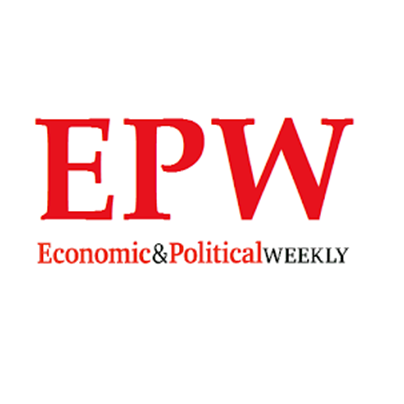EPW Controversy Comes to Rest With Appointment of Thakurta as Editor

NEW DELHI: ”Look ahead” is how the new editor designate of the Economic and Political Weekly Paranjoy Guha Thakurta is looking at his new assignment. More so, as his appointment comes after a public signature campaign by 101 social scientists representing as they said the “EPW Community”, to the Board of the Sameeksha Trust seeking a post-retirement role for current editor C.Rammanohar Reddy who is popular and very well respected.
Thakurta in an interview with The Citizen tried to keep his head over the waters that had become murky over the last few weeks with the letter publicly accusing the Board that includes historian Romila Thapar and economist Deepak Nayar of questioning “the appropriateness of his (editors) efforts to produce a set of volumes and a documentary to commemorate the completion in 2016 of 50 years of the journal’s existence, even though he had organised the required funding from outside.” And of keeping Reddy out of “the formal process of finding a successor, even though he clearly is the person most thoroughly involved with and informed about the editorial and financial conditions and requirements of the journal, and therefore conscious of its future needs.” The “EPW Community” suggested that he should be made a member of the Board of Trustees.
The Board did not respond to this in public as part of a deliberate decision to handle such issues from within. Sources wondered though why the social scientists had not raised the issues within the “community” and the Board instead of going public at this juncture.
Thakurta said that he was sure that these differences could be resolved amicably. He said that EPW was more than a journal, “it is an institution.” And added, “all of us, be it Rammanohar Reddy, the Trustees, I or others are much smaller than the institution that needs to grow and to be strengthened.”
Well reputed in the world of journalism Thakurta is excited and “humbled” at being selected for the post. He will replace Reddy who resigned last year, on April 1. Thakurta was almost reverent in his praise for Reddy saying that it was humbling and challenging to “step into the shoes of such a brilliant editor.”
He said that he did have any inside knowledge about the controversy that had preceded his appointment, but from the public domain had gathered that two issues had been raised: one about the editorial independence of the editor; and the second about the celebrations of EPWs 50th anniversary. “If you go through carefully into what everyone has said, it is clear that the differences are not substantive and hence can be resolved amicably.” He said he had not spoken as yet to Reddy but believed that the Trustees did not think that editorial autonomy had been in any way compromised. A point that the current editor has also made, maintaining that he had enjoyed a free hand for most of this period but was not happy about the manner in which he was questioned about the funds he had collected for the journal’s anniversary celebrations.
Sources said that funds, even if collected by the editor, should be with the sanction of the Trust that oversees financial matters. And that the Trust should be kept informed of such issues, even as it is committed to respecting editorial autonomy.
Reddy, the letter to the Trust pointed out, “did an exceptional job of re-energising and contemporising EPW at a time when many felt it was showing its age and at risk of losing its edge. All this he did in a self-effacing and accommodating style that has won him respect and admiration across ideological lines.” The Trustees reportedly share this view in its entirety.
The letter further noted, “it would indeed be profoundly unfortunate if such dedication, personal sacrifice, and unstinting effort from an extremely successful editor were to end in an unhappy and ungracious parting of ways between him and the EPW board of trustees.”
Thakurta was clear about a “look ahead, move ahead” approach maintaining that he was sure that all such issues, could and should, be resolved. He said as he had only just been given the news of his appointment he had still to formulate thoughts and plans about EPW that had in its 50 years raised every single issue that was pertinent to our country, political, economic, social. “I cannot think of a single issue that was not discussed, debated in the EPW over these years,” he said quoting Ram Guha as describing the journal as “ the conscience of the nation.”



